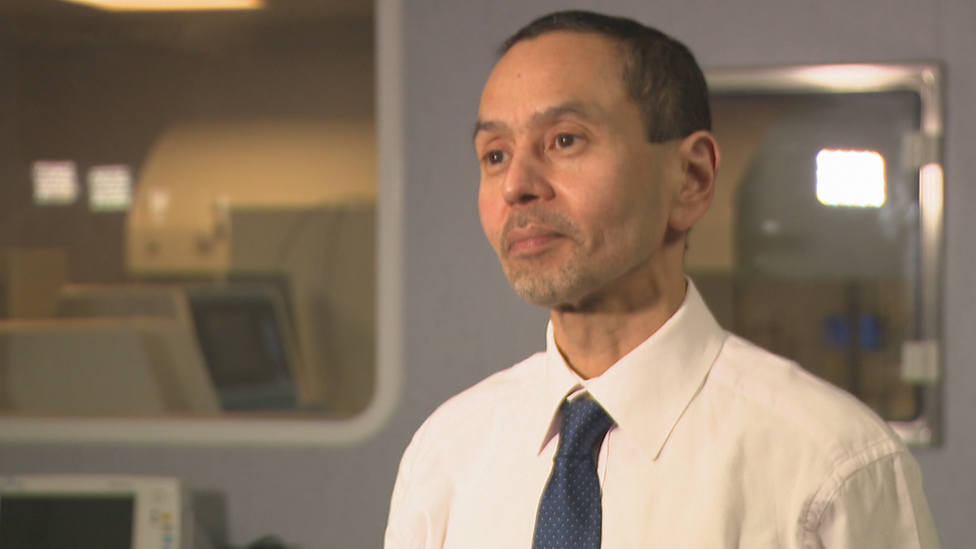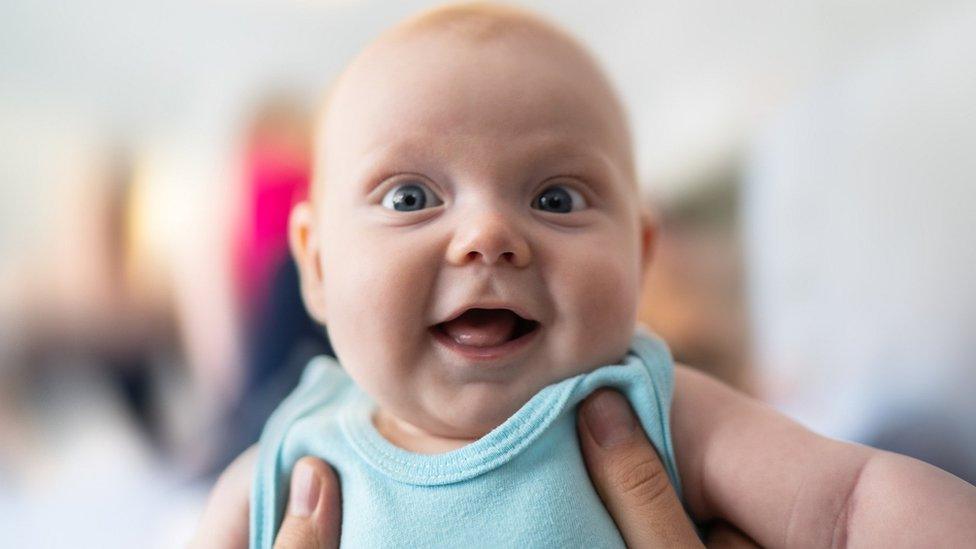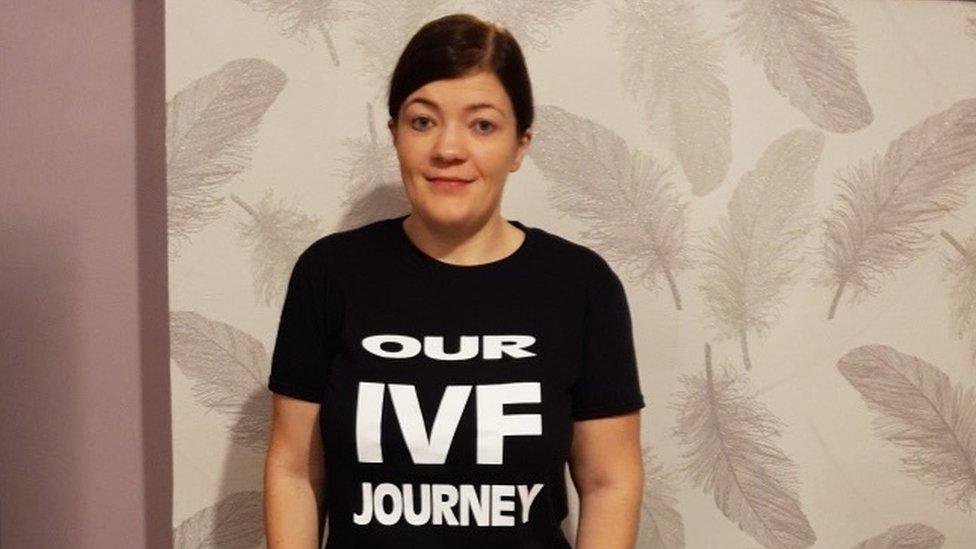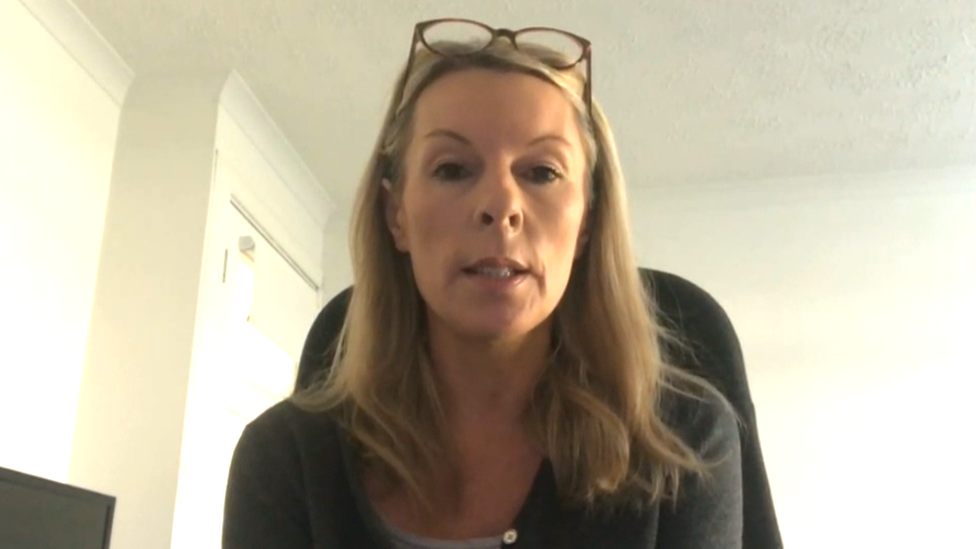Coronavirus: IVF treatment delays 'heartbreaking'
- Published

Dr Marco Gaudoin, medical director at Glasgow's GCRM clinic, said coronavirus has inevitably had an impact on fertility services.
One of Scotland's top fertility doctors said the Covid-19 lockdown will mean some couples could miss their last chance of conceiving through IVF.
All new treatments have already been banned amid the outbreak.
Both NHS and private clinics, external have been instructed to stop treating patients who are in the middle of an IVF cycle by Wednesday.
Dr Marco Gaudoin, medical director at Glasgow's GCRM clinic, described it as a "heartbreaking situation".
According to the NHS, around one in seven couples may have difficulty conceiving.
Time sensitive
Dr Gaudoin told BBC Scotland: "The success of fertility treatment is so age and time dependent that any delay will have an impact.
"Statistically from the age of 34 onwards, for every month that passes your chances drop by around 0.3%. So after six months it's about 2%.
"If you are only starting at a level of 14% chance of it working and 6 months later you are down to 12%.
"That is a big drop proportionately and there will be an impact on patients chances of success because of this delay".

Dr Gaudoin said all cycles stopped at the beginning of the month.
Women who were "in stimulation" and had got to the stage of egg retrieval, but did not have an embryo transfer, have had their embryos frozen so they can be used at a later date.
He added: "It is highly distressing for patients."
Dr Gaudoin confirmed patients who had already started treatment will take priority when the current restrictions are lifted.
In the meantime they are being offered consultations via Skype.
The decision to suspend services is designed to protect patients and staff from exposure to the virus, while also allowing resources to be redeployed to the frontline.

Lauren's story: 'When is it going to start again?'

Lauren Jamieson discovered her first round of IVF had been unsuccessful last month
Lauren Jamieson has been trying to have a baby for more than 10 years.
She started her IVF treatment on the NHS in February this year.
The 34-year-old, from Kilmarnock, Ayrshire, discovered her first round was unsuccessful on 14 March, just as the pandemic took hold.
She said: "It's emotionally draining. You just sit thinking constantly when is it going to start again?
"It has taken me ten-and-a-half years to get where I had to be.
"Obviously there are other ladies that have had their treatment cancelled so there are going to obviously be more of a priority than myself now, which is totally understandable.
"It is like your life is on hold. It is hard to try and think positively when you have waited so long."

In its latest update the Human Fertilisation and Embryology Authority posted: "We understand this is a difficult time for patients and clinics with all fertility treatment being stopped from 15 April 2020.
"We will do all we can to lift this restriction as soon as possible but we cannot give a date when this will happen given the current situation with the Covid-19 pandemic in the UK."
HFEA said the first step of its strategy will be to consider the criteria that will need to be satisfied before the direction can be lifted.
The statement concluded: "Our aim is for the UK fertility sector to restart as soon as possible and we are keeping the situation under regular review."

Gwenda Burns, chief executive of the Fertility Network, described the current situation as "distressing and devastating"
Charities have witnessed a marked increase in calls to their counselling helpline from concerned patients across the country.
Gwenda Burns, chief executive of the Fertility Network, external which offers specialist support said: "It's quite distressing and devastating to almost get to have your treatment after a very emotional journey to then be told everything is cancelled.
"Scotland at a very early stage called a meeting to look at the strategy for when clinics open again to ensure, where possible, patients will not be disadvantaged."
Between the clinics, the Scottish government and the Fertility Network it has been agreed that where the clock was stopped then it will restart again when centres open up.
Ms Burns added: "Entitlement should still be the same and subject to the same criteria."